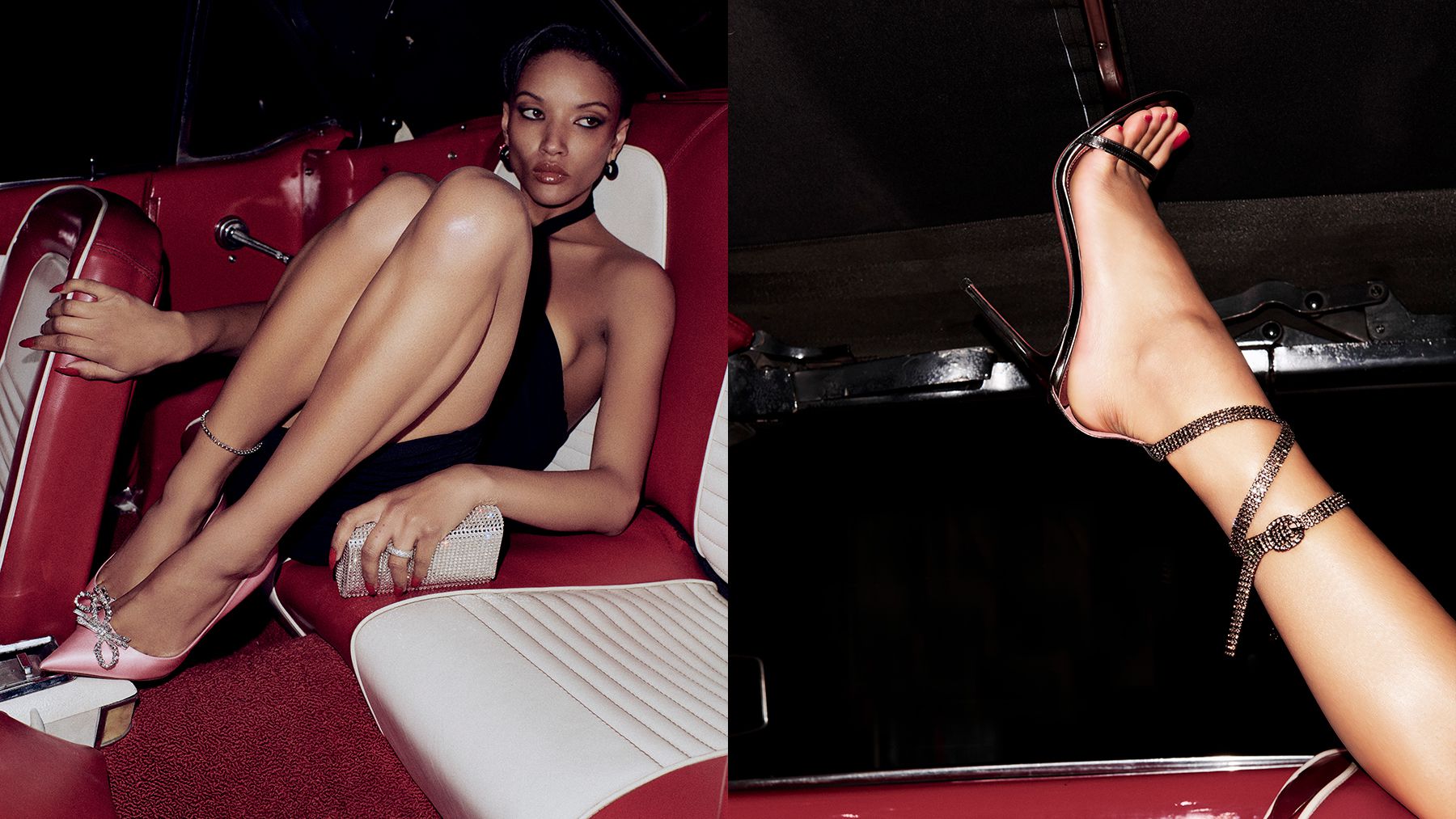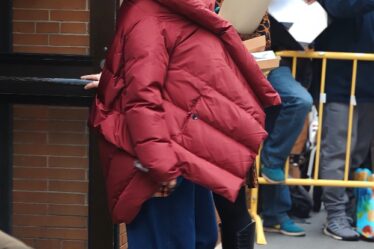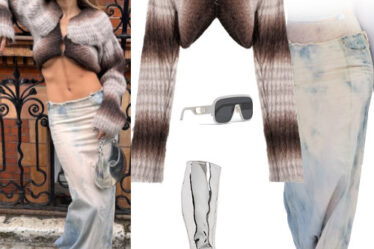
LONDON – Amina Muaddi is laying the groundwork for her namesake brand’s next chapter.
On April 20, the label best known for its $1,000 martini-heeled slingbacks will unveil its first permanent retail destination, a 1,000-square-foot shop-in-shop at luxury department store Harrods in London, one of the label’s biggest markets. The move is designed to give the team a taste of what it’s like to operate physical retail, with a view to opening a freestanding store in the near future, founder and designer Muaddi said.
While the Paris-based brand’s Harrods partnership will continue to operate on a wholesale arrangement, Muaddi and her team have taken the lead on everything else, such as merchandising and store design — “all the things that we didn’t have to deal with before,” Muaddi said. She designed the staff uniforms herself and commissioned architect Harry Nuriev’s Crosby Studios agency to create the retail outfit.
“For us, it’s a way to flirt with retail,” she said. “This is the first thing for us that comes close to a brick-and-mortar store.”
For Muaddi, the move is only one part of a larger strategy to gear her five-year-old self-funded label up for its next stage of growth, harnessing the hype around her shoes into building a business with longevity. Over the past year, the company has firmed up relationships with suppliers to expand production capacity and grow its headcount, Muaddi said. The brand also recruited a retail director before launching its e-commerce website last month — its first foray into direct-to-consumer distribution.
“We’ve evolved, we’ve tried to transform a successful startup into a successful business,” said Muaddi. “That’s what we’re working on right now.”
Since launching her label in 2018, Muaddi prioritised brand positioning over pacey growth, limiting distribution in a bid not to oversaturate the market and keeping a tight rein on the size of her stockists’ buys. As popularity for her glitzy sandals soared, even throughout pandemic lockdowns, the fact that her products were often sold out or hard to track down only boosted their appeal among shoppers.
The buzz helped her to keep growing even as global sales of women’s designer footwear plunged 22 percent in 2020, according to data from market research firm Euromonitor.
“During a time where most people were wearing sneakers and comfort shoes, Amina continued to accelerate and grow,” said Helen David, chief merchant, luxury at shoe seller Kurt Geiger, which operates the footwear departments of a number of British department stores, including Harrods. “We continuously sold out, we couldn’t keep it in stock.”
Last year, brand sales reached about €55 million ($60.4 million), Muaddi said, up from €20 million ($22.0 million) in 2019. Yet balancing slow and steady growth with soaring demand has thrown up its own challenges.
“We were continuously selling out,” she said. “Even though it’s amazing and we’re very happy about it, when you go into stores, you will not see the brand.”
The Harrods corner will help give the brand a more consistent presence in London, which is one of its strongest markets, Muaddi said. It will also provide customers with a physical touchpoint to engage with the brand.
“I definitely want to be able to offer the customers [an] experience where they get to see our universe, not just our product,” said Muaddi. “Nowadays, that’s what matters in retail. With all the ways to shop that we have right now, when a customer comes to our stores because they want to have the experience of the brand.”
Muaddi is also working to reinforce the brand’s structure, deepening relationships with Italian suppliers to expand its production capacity and formalising the company internally with the creation new departments. The brand is expanding its staff, recently adding a retail director to spearhead the brand’s direct-to-consumer operations. On the creative side, Muaddi recruited dedicated designers for bags and jewellery, categories the brand launched in 2020 and is looking to develop further this year.
Maintaining momentum as an independent designer brand could be challenging amid a slowing market for luxury goods, as Western consumers are expected to pull back on discretionary spending this year in the face of rapid inflation.
But Muaddi sees a big opportunity to double down on the Middle East and expand into new markets like Asia. Next month, Muaddi will host an event in Seoul for press and clients in partnership with stockist Boon The Shop. Meanwhile, Muaddi’s first collection of day bags is set to launch this autumn. (The current range is focused on evening bags — dubbed “Aminis” due to their micro size.)
Buyers don’t expect demand for her shoes to slow down soon. At Harrods, Amina Muaddi is one of its five top-selling footwear labels, David said. Tiffany Hsu, vice president of womenswear and kidswear buying at Mytheresa, said many styles continue to sell out very quickly at the retailer, and efforts to diversify the brand’s range are gaining traction.
“It’s no longer just a party shoe brand, but much more about the overall aesthetic and with a wider audience appeal,” she said. “She knows her clientele really well.”



